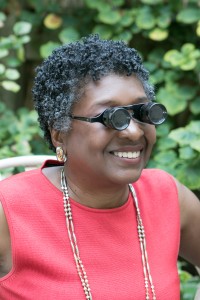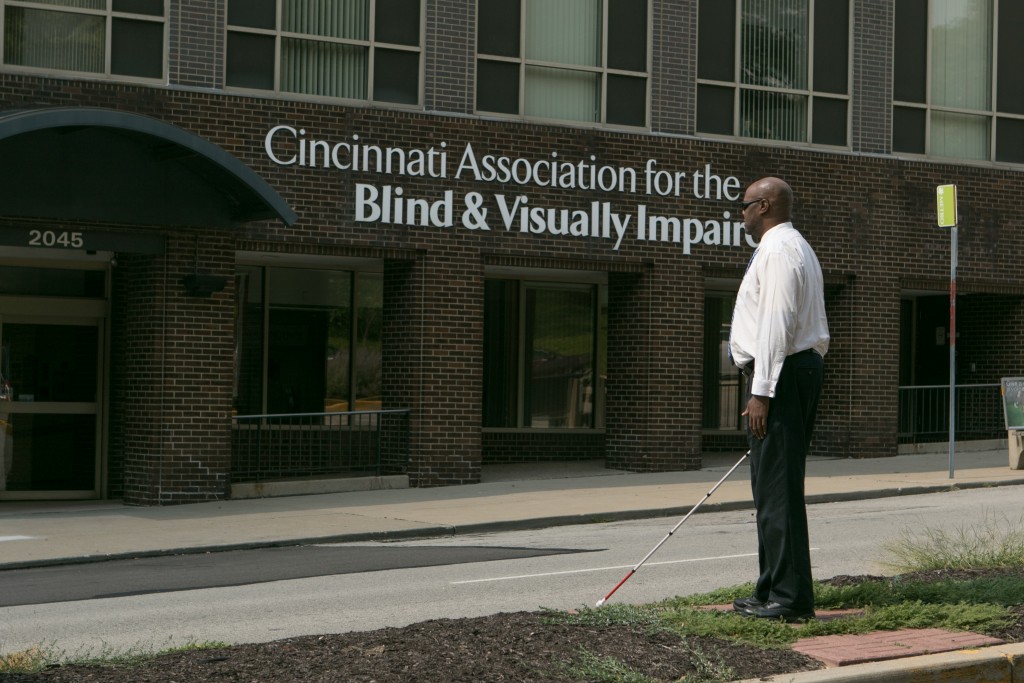African Americans are losing their vision rapidly; here’s how to stay on top of your vision health.
What causes blindness in African Americans?
How often should I have my vision health checked?
How do I prevent vision loss?
An essential but often overlooked part of one’s health is vision health. Some eye diseases, like glaucoma, do not show any apparent symptoms. People slowly lose their sight without warning.
Fortunately, optometrists can detect glaucoma and other eye conditions much earlier by dilating patients’ pupils during regular visits.
Vision Loss and Testing
“Protecting one’s eyesight through a regular checkup from a qualified optometrist is one of the most important things you can do for your vision,” optometrist Wallace Young, M.D. said. “Sometimes people have eye problems that can only be detected through a complete eye exam. You should contact an optometrist if you have not had an exam or are experiencing eye problems.”
 According to the U.S. Centers for Disease Control and Prevention, 12 million people 40 years and over in the United States have vision impairment. This is defined as trouble seeing, even with corrective lenses or contacts. Vision loss in Hamilton County is more than double the national average.
According to the U.S. Centers for Disease Control and Prevention, 12 million people 40 years and over in the United States have vision impairment. This is defined as trouble seeing, even with corrective lenses or contacts. Vision loss in Hamilton County is more than double the national average.
The Health Foundation of Greater Cincinnati’s 2010 Eye Health Report (now Interact for Health) states that 19% of adults in Hamilton County described their eyesight as poor or fair, even while wearing glasses or contacts. The study also reported that 7% of adults in Hamilton County, ages 46 and older, have never had an eye exam in which their pupils had been dilated.
More concerning is that only 49% of adults living below the federal poverty line (earning less than $24,250 for a family of four) reported having an eye exam in which their pupils were dilated in the last two years. And only 15% of this population reported never having an eye exam in which their pupils were dilated.
Related Article: Cincinnati’s Oldest Black Residents Say What Keeps Them Going
Visual Impairment and African Americans
Diminishing eyesight is even more prominent among African Americans. A survey conducted in 2011 by the Glaucoma Research Foundation found that glaucoma is the leading cause of blindness in African Americans.
African Americans are found to be 15 times more likely to suffer from vision impairment caused by glaucoma than white Americans. Unfortunately, the study also found that 16% of African Americans are unfamiliar with glaucoma disease.
Hypertension and diabetes, diseases affecting eyesight, are also prominent in African Americans nationally. According to BlackDoctor.org, 18.7% of persons from the Black community across the U.S. ages 20 and over have diabetes.
Additionally, the American Heart Association indicated that more than 40% of non-Hispanic blacks have high blood pressure. As a result, African Americans may be more prone to vision loss.
Related Article: Free, low-cost, and Medicaid-eligible healthcare, pharmacy care, and health services in Cincinnati
Vision Health in Hamilton County
Vision loss is even more prominent among African Americans in Hamilton County. The Health Foundation of Greater Cincinnati’s 2010 Eye Health Report (now Interact for Health) also noted that more than one in four African Americans (26%) reported fair or poor eyesight, compared to one in six white non-Appalachian adults (17%).
“Unfortunately, many African Americans believe that vision loss is a part of the aging process, and many do not seek medical care or support services as they should. Lifestyle diseases, such as hypertension and diabetes, are prominent in the African American community. These diseases, along with cataracts and glaucoma, may cause vision loss,” Denise Davis, M.D. said.
If you or someone you love are uninsured and do not know where to begin, Hamilton County Job and Family Services has a comprehensive guide to get you started. Getting health insurance is the first step to caring for your health and preventing vision impairment caused by manageable diseases. Need glasses but trying to save money? Check out these five ways to save money on prescription eyeglasses.
Cincinnati Association for the Blind and Visually Impaired
Technology and improved services now allow persons with vision loss to live more independently. Cincinnati Association for the Blind and Visually Impaired (CABVI) provides resources to help people with vision loss better understand and adapt to their conditions. They also offer employment opportunities, home assessments, and training opportunities for persons with vision loss.

Ginny Backscheider, Director of Program Services at CABVI, actively works to educate the community about the services available to persons with vision loss.
“We provide many specialized services to help individuals maintain their independence. Our professional staff is ready to help persons with vision loss live successfully and confidently,” Ginny Backscheider said.
For more information on how the CABVI can help you or a loved one, visit www.cincyblind.org, or call 513-221-8558.
Related Article: CABVI seeks to empower the blind and visually impaired with opportunities to seek independence.
The U.S. Department of Health and Human Services recommends that adults ages 18-60 have a comprehensive eye exam (including pupil dilation) every two years. Keep your family’s vision health in check.
Written by: Trevon Mathews
The Voice of Black Cincinnati is a media company designed to educate, recognize, and create opportunities for African Americans. Want to find local news, events, job posting, scholarships, and a database of local Black-owned businesses? Visit our homepage, explore other articles, subscribe to our newsletter, like our Facebook page, join our Facebook group, and text VOBC to 513-270-3880.
Vision Health images provided by CABVI